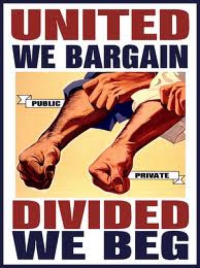 Unions are, by their nature, conservative organizations.
Unions are, by their nature, conservative organizations.
Their aim is to protect members from change. Workers whose skills drive change, like computer programmers today, don’t need unions. Biology researchers don’t need unions.
But most other people do, because without unions competing in the marketplace, without labor being as organized as capital, imbalances grow that can tear any society apart. That’s what is happening now. The imbalance of power, between labor and management, between workers and owners, is tearing the fabric of American society apart as we watch.
I’m often asked whether I’m liberal or conservative, left or right. I’ve been both. Mainly, I’m for balance. I’m for muddling through. I’m for open competition, and for maintaining competition after the capitalist game ends and most players lose. Only government can maintain that balance, when it’s supported by the people and their interests. Unions are one such interest.
To say, “I’m for the unions,” however, as many liberals do, isn’t an adequate answer. Because, as I said, unions are conservative. Give them power and they’ll slow progress. Union bosses can be corrupted, and can corrupt everything they touch, because like managers, like entrepreneurs, like government officials, and like writers, they’re human beings.
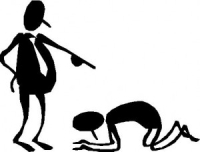 Power imbalances are what I fear. The oil industry holds too much power over the climate’s natural process of acclimation. White men hold back the talent of non-whites and women, talent we need to address the climate crisis. Big businesses are driving out small ones, faster than institutions can adjust to it.
Power imbalances are what I fear. The oil industry holds too much power over the climate’s natural process of acclimation. White men hold back the talent of non-whites and women, talent we need to address the climate crisis. Big businesses are driving out small ones, faster than institutions can adjust to it.
And management is trumping labor. We’re forgetting that the purpose of progress is to lift all men, not just a few. By engaging in class warfare, billionaires create a feudal society and hurt their own cause of building wealth through change. They’re chewing up human capital at a time when that’s the only kind that counts. They are eating their own seed corn.
Most labor unions, whether in manufacturing or services, have been getting killed for decades. Fewer than one worker in 10 now belongs to a union. When it comes to pay and working conditions, you take what the boss offers. That’s the story of my life. You can’t have a union without a healthy industry, and the destruction of the media industry in our time has also destroyed its unions.

The entertainment business remains heavily unionized. While football players and actors aren’t what you imagine when you picture union members, they are. The football union is called the National Football League Players Association (NFLPA). The actors’ union is called the Screen Actors Guild (SAG).
These are traditional unions, and they have generally done right by their people. Many of their members also have their hearts in the right place. That is, many identify themselves as workers, despite many being millionaires. That’s one reason why there are so many political fights involving these businesses. Actors find industry associations leaning toward Trump Administration folks and get mad. Football players see their employers leaning to the political right and they also get mad.
We saw some of this at the Emmys this year. Don’t pretend the network bosses weren’t happy to see Sean Spicer there. They want to pretend the current Administration is business as usual – just another Republican supporting their tribe as Obama supported the other tribe. It’s not business as usual, as I have noted repeatedly here. It’s a violation of democratic norms, a combination of the Jim Crow Project and Russian interference. Many actors understand this. Their hackles got raised. They remain raised, on issue after issue, as a close examination of this reporter’s Twitter feed makes clear.
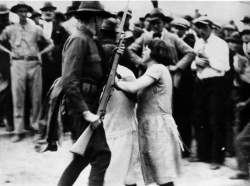
The forces of negation, of negativity, of reaction, they’re strong in the South. In economic terms, capital never took the beating that such forces took in the North from unions. They’ve benefitted enormously from being anti-union. Southern knees keep jerking. It’s why the Jim Crow Project is attractive to Wall Street mangers who should know better.
When unions lack competition, however, they can do great damage.
Public service unions remain strong. A parent whose kid is abused by a teacher quickly finds just how powerful they are. Unions always represent their members, even when those members are in the wrong. They tilt any playing field they can their way, just as management does. Kids and parents can find themselves in an adversarial process, with bureaucrats and union bosses united against them. I’ve lived it. Small wonder that even liberal parents would just as soon send their kids to private schools, where teachers don’t have unions. At least there they can get bad teachers fired.
This brings me to the most powerful unions in our society. Police unions.
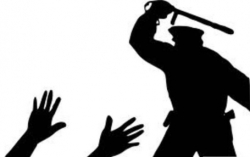
It shocked a lot of liberals when police union officials in Philadelphia and elsewhere recently revealed themselves to be Nazi sympathizers, but it shouldn’t have. Police unions are about the only unions the alt-right will find common cause with. They keep other groups, even other unions, down for them.
Policing is hard work. Police often need defending, both physically and politically, against politicians seeking to save money and citizens demanding compassion. But they also need protection against their own worst impulses, and those of their leaders. This they don’t have.
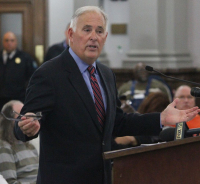
The fact that this is a natural evolution doesn’t make it any less dangerous. This is what crises are for. It’s what Jefferson was getting at when he talked about continual revolution. Crises act like forest fires, clearing out the past to make way for the future.
Wherever you stood in 2016, we needed this crisis.










